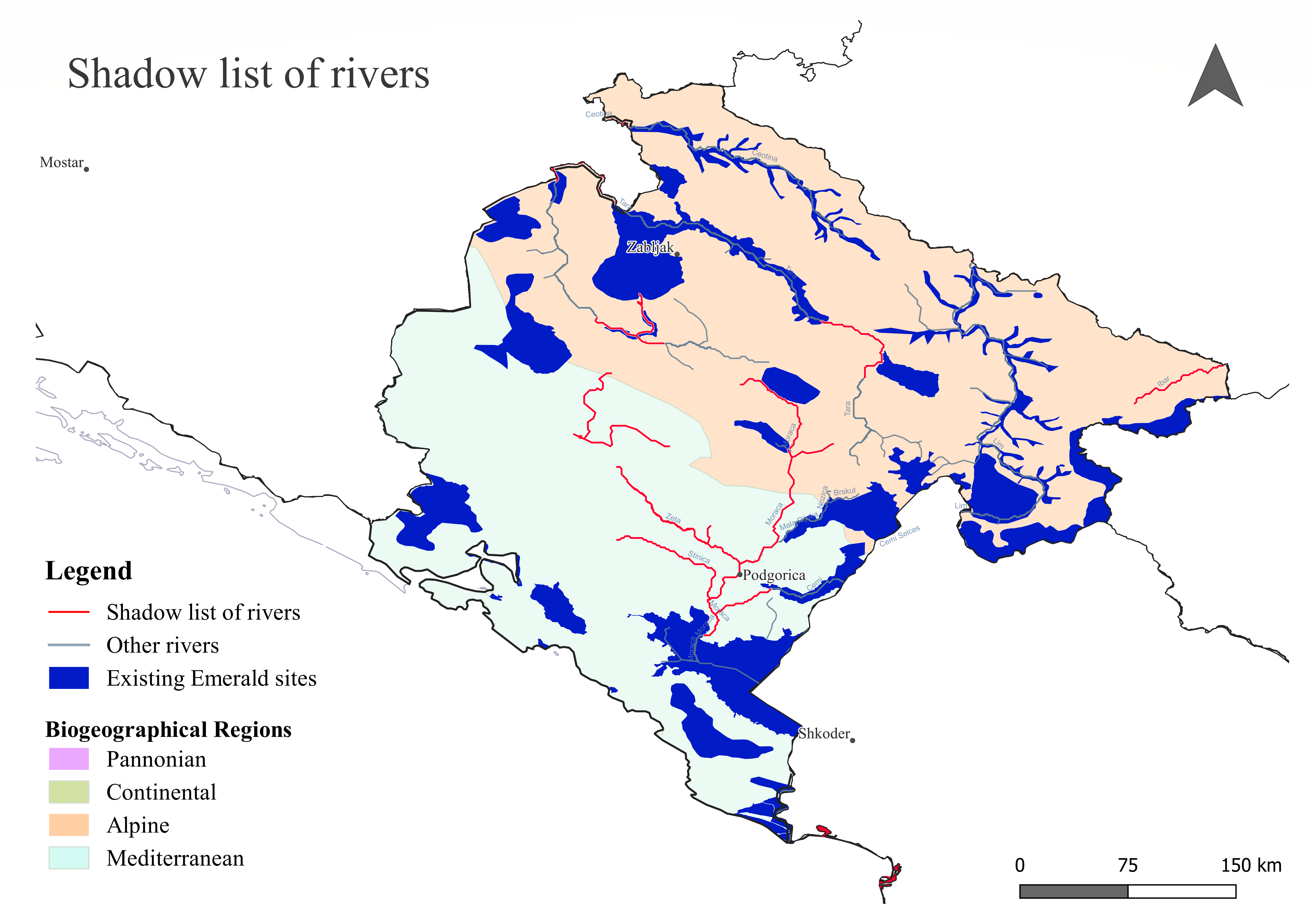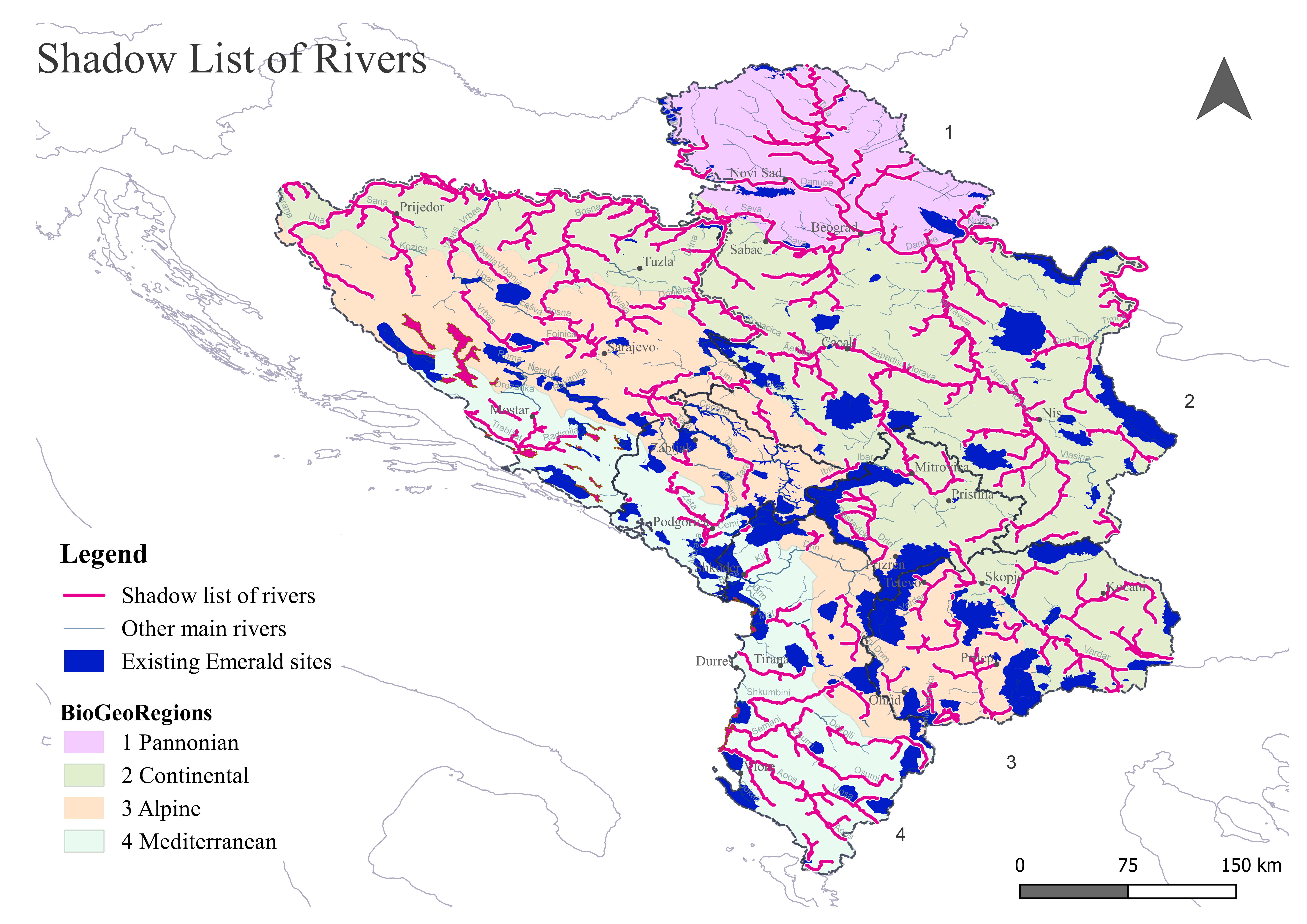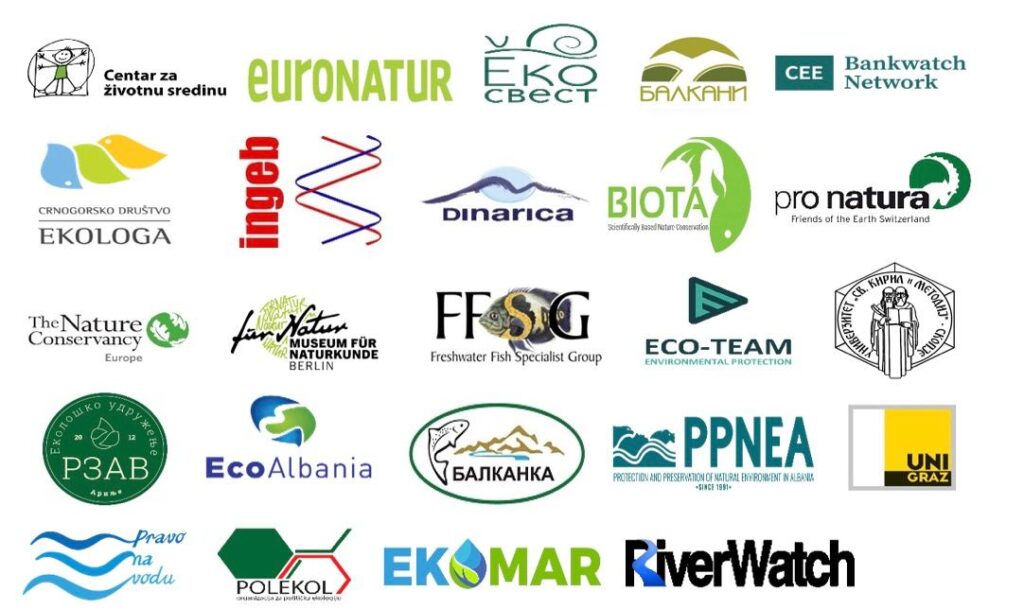In 2011, Western Balkan countries proposed a small number of sites for inclusion in the European Emerald Network of protected areas. However, many rivers in the region remain unprotected — a new proposal aims to correct this oversight.

On February 12, 2023, a group of scientists and civil society organisations from 11 countries published a list of 88 priority rivers for protection and called on Western Balkan countries that are signatories to the Bern Convention to expand the Emerald Network in the region.
The Emerald Network was established by the Council of Europe in 1989 under the Convention on the Conservation of European Wildlife and Natural Habitats (Bern Convention). It consists of areas of special importance for nature conservation to protect plant and animal species in their natural habitats.
As signatories to the Bern Convention, Albania, Bosnia and Herzegovina, Montenegro, North Macedonia, and Serbia began their inclusion in the Emerald Network in 2011 by proposing a small number of protected areas. However, to date, none of these countries have expanded this list, most sites have no protection under national legislation, they are unmanaged, and systematic data collection or necessary resources are lacking. Because of this, most rivers and fish species remain unprotected.
The list of rivers published today is the result of the Emerald Green seminar organized by the NGO CEE Bankwatch Network in December 2022. Participants at the seminar collected relevant scientific data on individual fish species and their habitats, based on which the list of rivers to be included in the Emerald Network was prepared.
The Western Balkans is a globally important biodiversity hotspot, especially for freshwater species and habitats. Mountain ranges, rivers, lakes, and coasts are home to many endangered species and important habitats for numerous endemic species found nowhere else. Compared to the rest of Europe, most rivers in the region are in good or very good condition, and many are ideal candidates for protection, as recognized by today’s published list.
“Protecting rivers and effectively implementing the Emerald Network is a long-term process that requires cooperation among governments, scientists, civil society, and local communities. Our proposal, based on exhaustive scientific data on fish species in the region, is an important contribution to this process. The next step is to support governments in the region in preparing official proposals for new Emerald sites,” said Andrey Ralev, biodiversity expert from the CEE Bankwatch Network.

Jelena Popović, Secretary General of the Montenegrin Ecologists Society, said: “Establishing a national Emerald network of areas of special conservation interest while Montenegro is in the process of European integration is an ideal platform for establishing the Natura 2000 network. This is also one of the mechanisms for protecting the most valuable natural areas until the official implementation of the Natura 2000 network after Montenegro joins the European Union. Wild rivers in Montenegro are under enormous pressure due to sand and gravel extraction, construction of hydropower plants, and lack of wastewater management, to name just a few problems. Updating the list of national Emerald sites and proper implementation of the network would be a significant contribution to the protection of rivers and other valuable habitats.”
The joint statement of scientists and civil society representatives can be read HERE.

